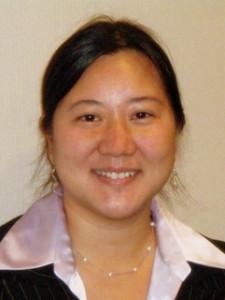Doctoral student Melissa Densmore urged mobile healthcare developers to consider how their services fit with the rest of their users’ lives and technology habits at a Washington, D.C., conference yesterday on the use of mobile technology in health care.
She recently returned from fourteen months in Mbarara, Uganda, conducting her dissertation research on the use of mobile devices for information management in the Uganda Output Based Aid health project. Based on her hands-on experience, Densmore emphasized the importance of context when planning mobile health applications. SMS-based notification systems may be more appropriate in some contexts, while smartphone-based applications may make more sense in others. Context is also vital for ensuring that any solutions are scalable and sustainable. “Mobile health in a vacuum is vulnerable and will not scale” she said.
Densmore challenged the assumption that “everything that can be resolved with mobile technology must be resolved with mobile technology;” rather, mobile technology is only one part of a larger information ecosystem. In her work in Uganda, she found that adding laptops was the best solution for some information challenges.
Densmore is part of the I School’s Information and Communication Technologies and Development (ICTD) research group; her doctoral research focuses on ICT for healthcare in developing countries. While in Africa last year, she also volunteered as a visiting lecturer at the Mbarara University of Science and Technology (MUST), and worked on ICT projects for HEAL Africa Hospital in Goma, Democratic Republic of Congo.
The presentation was part of the 2010 mHealth Summit being held this week in Washington, D.C. The conference is exploring ways mobile technology can increase the access, quality, and efficiency of healthcare in communities in the US and around the globe. Conference keynote speakers include Bill Gates; Francis Collins, director of the National Institutes of Health; Ted Turner, chair of the United Nations Foundation; and Aneesh Chopra, the US Chief Technology Officer.
Her presentation was part of the panel discussion “Case Studies on the Convergence between Mobile Money and Mobile Health: What Does the Future Hold?” The panel discussed potential solutions to leverage mobile technology and the advancements already made in mobile money to make paying and reimbursing for health services easier and cheaper.











